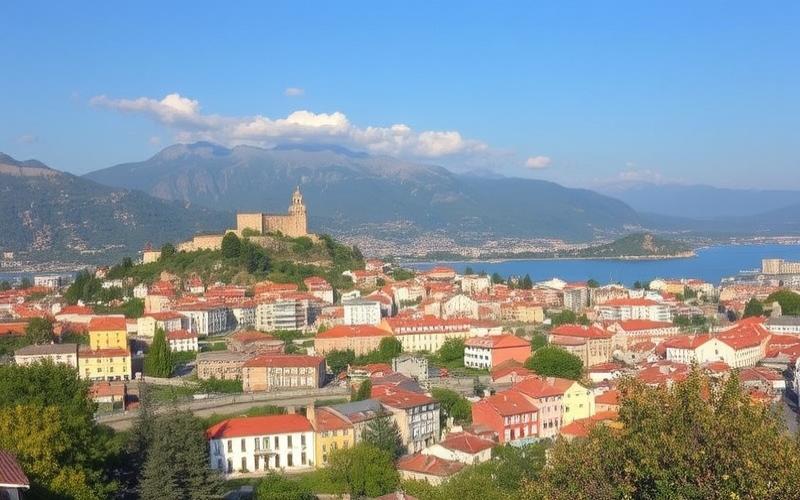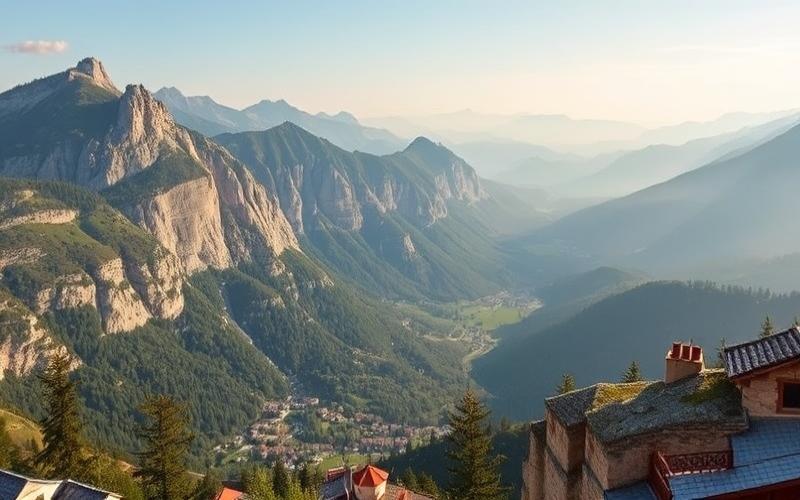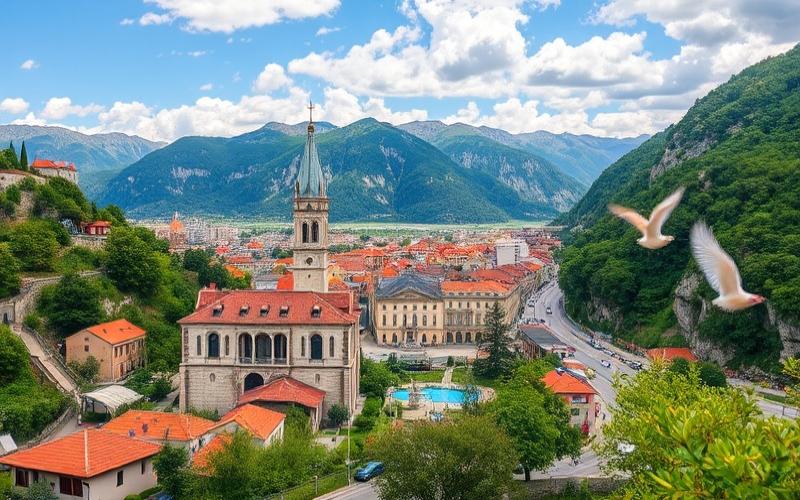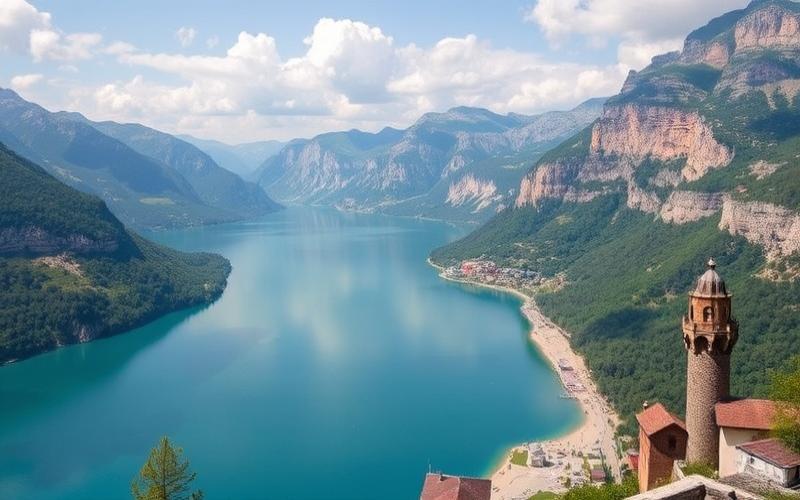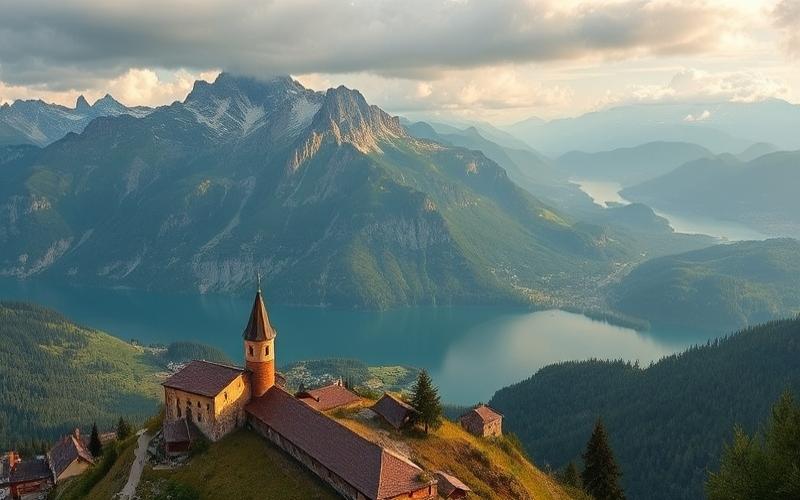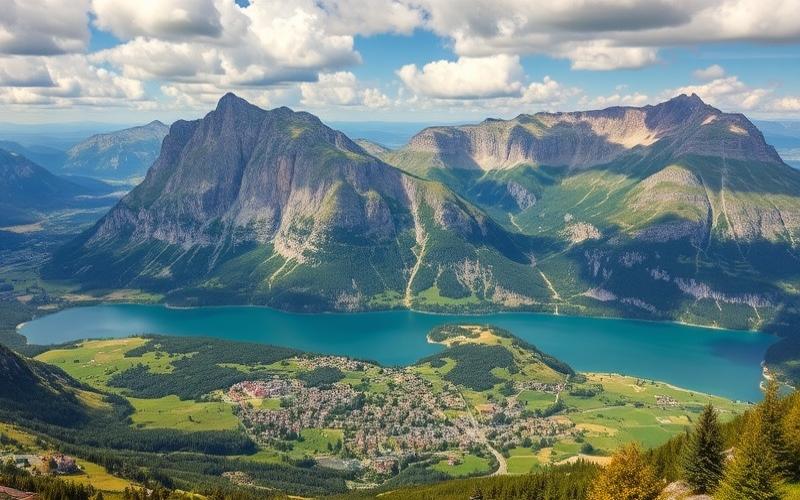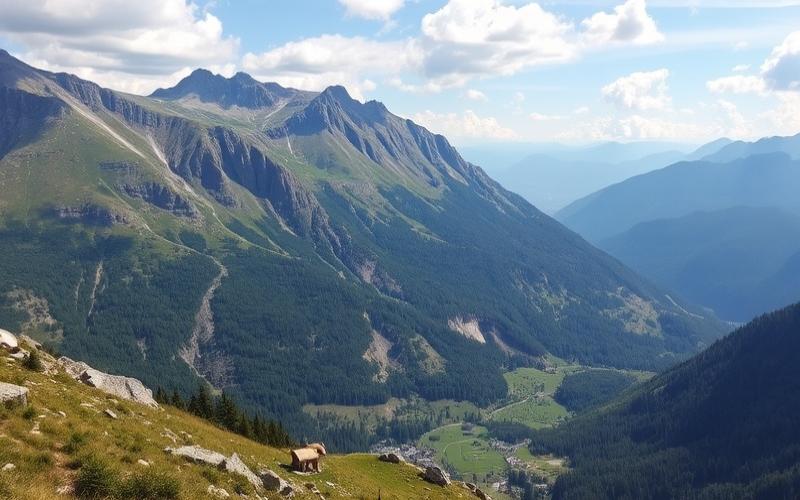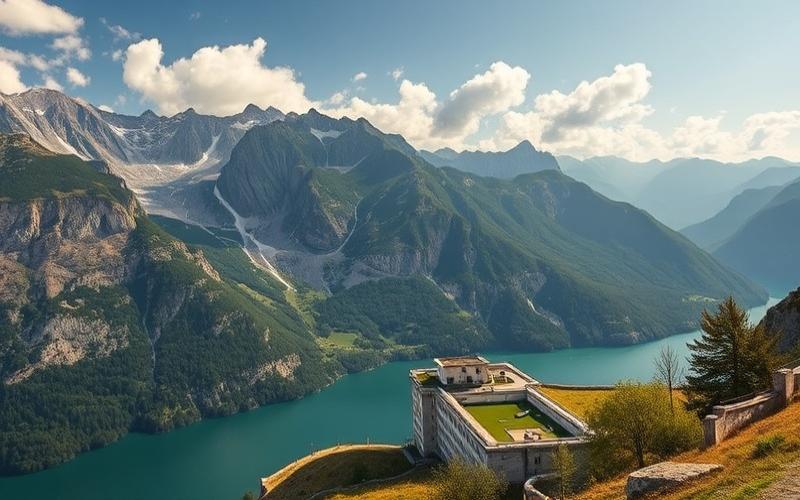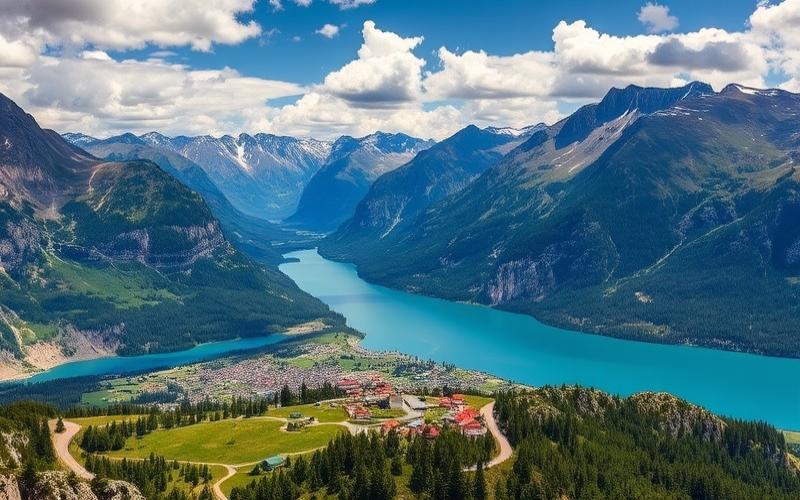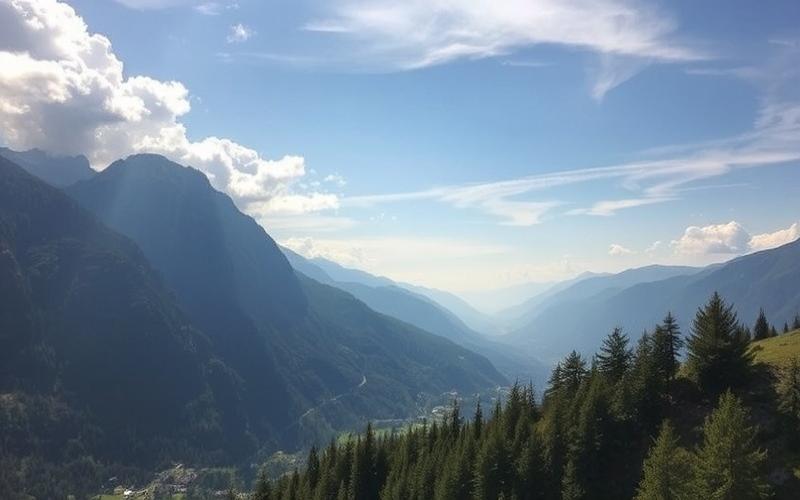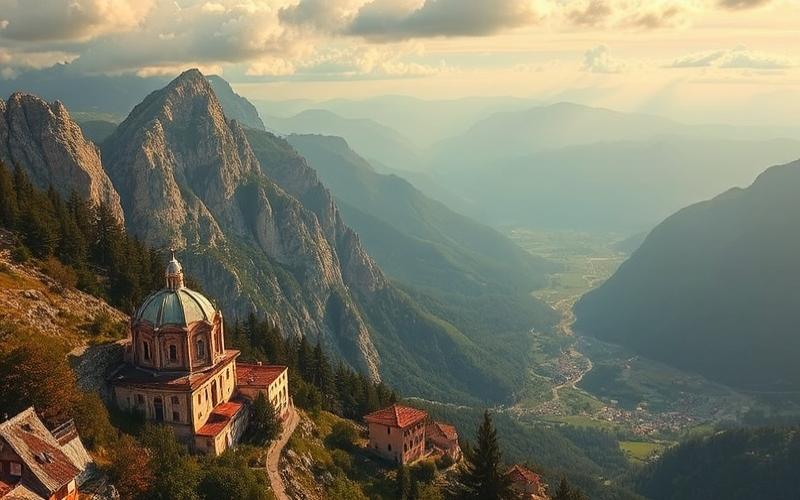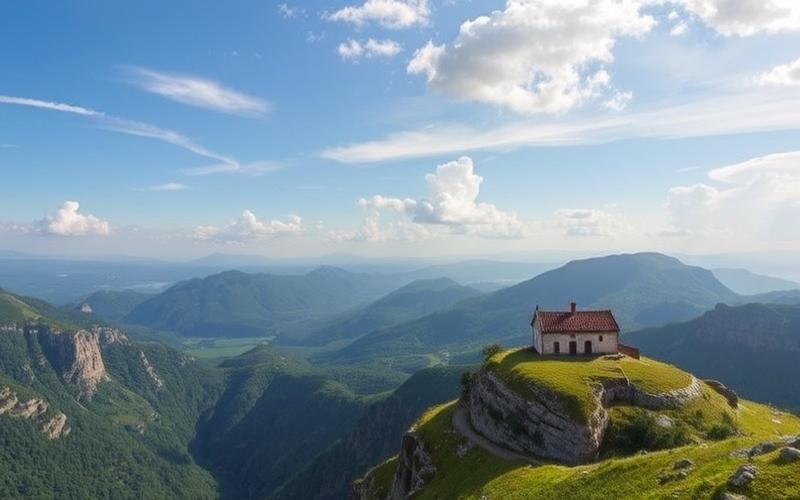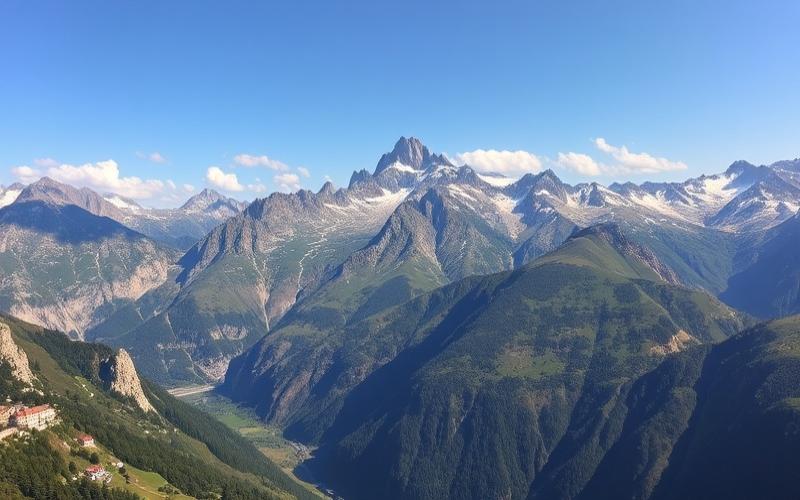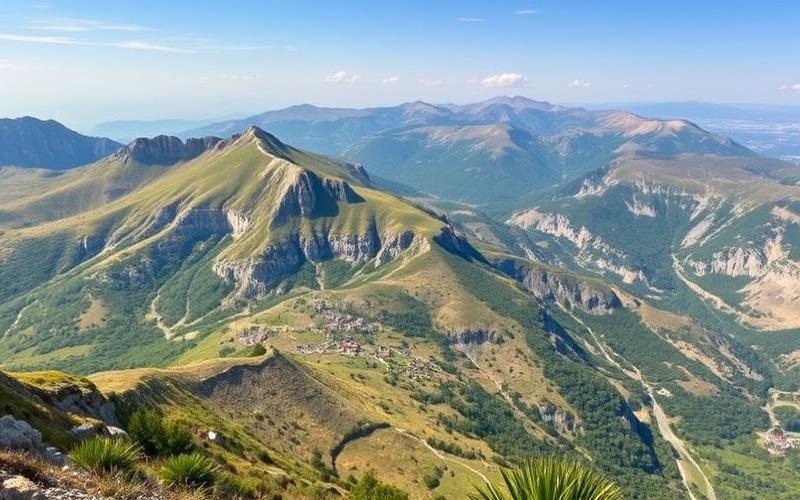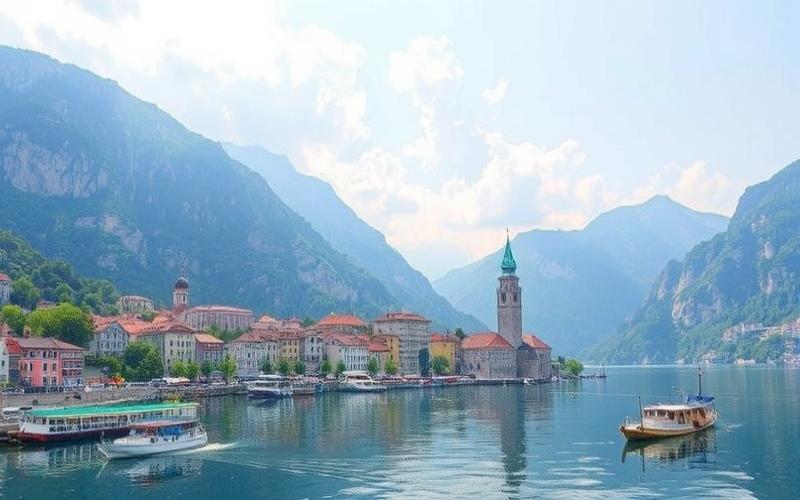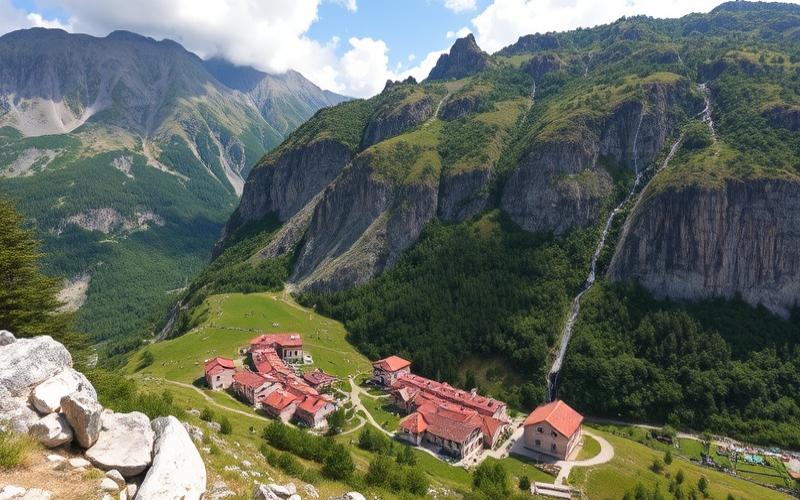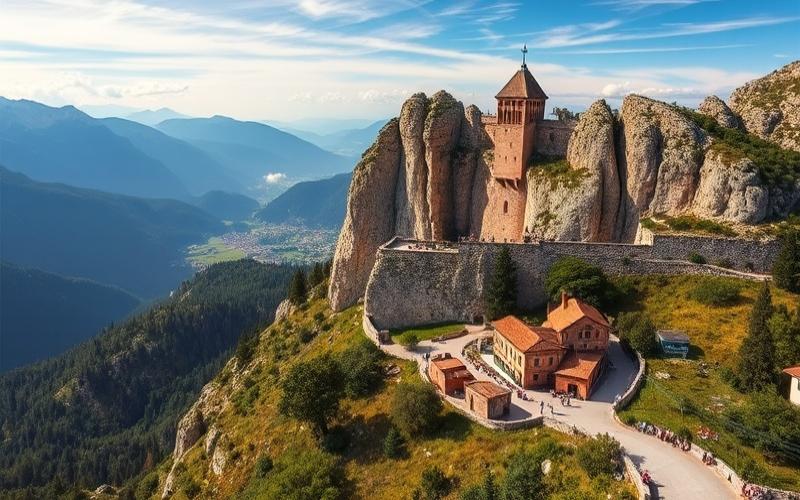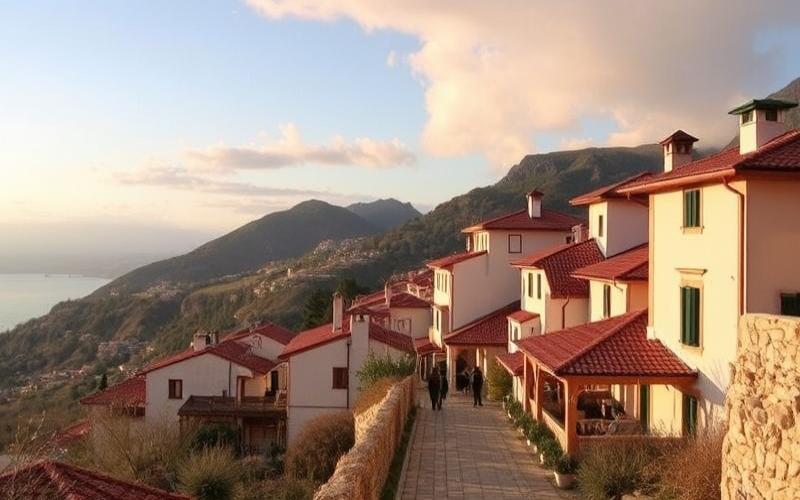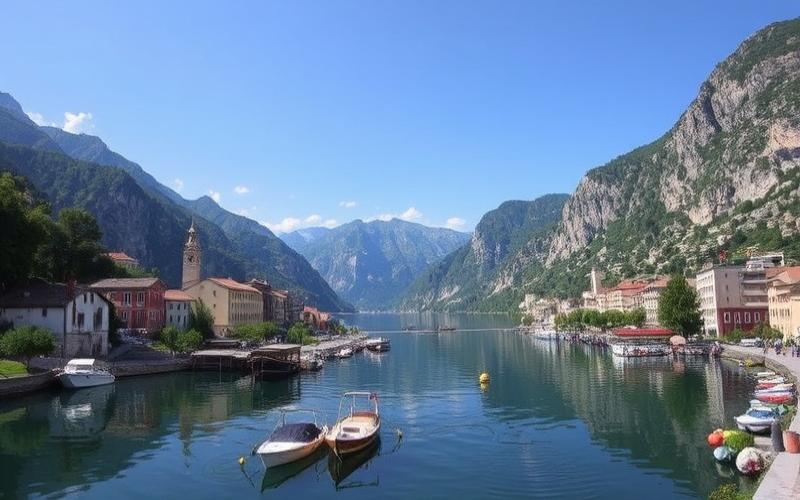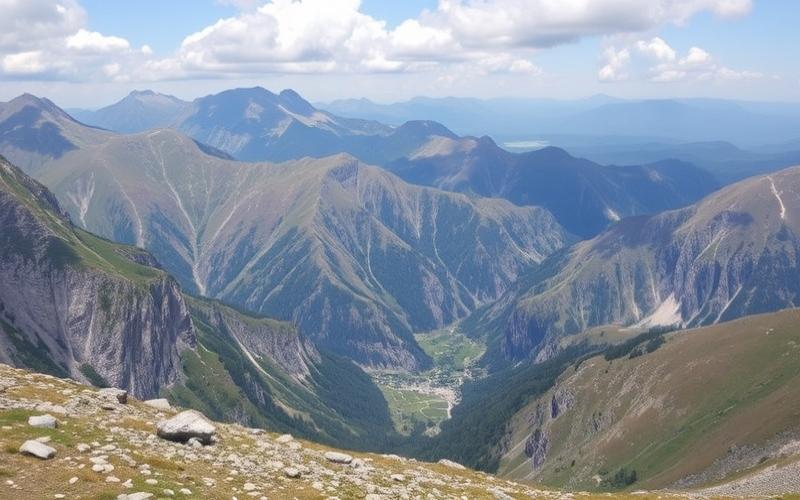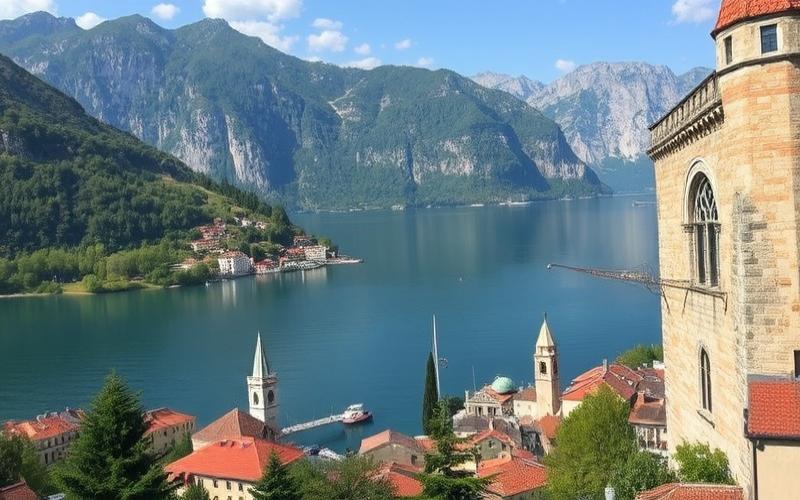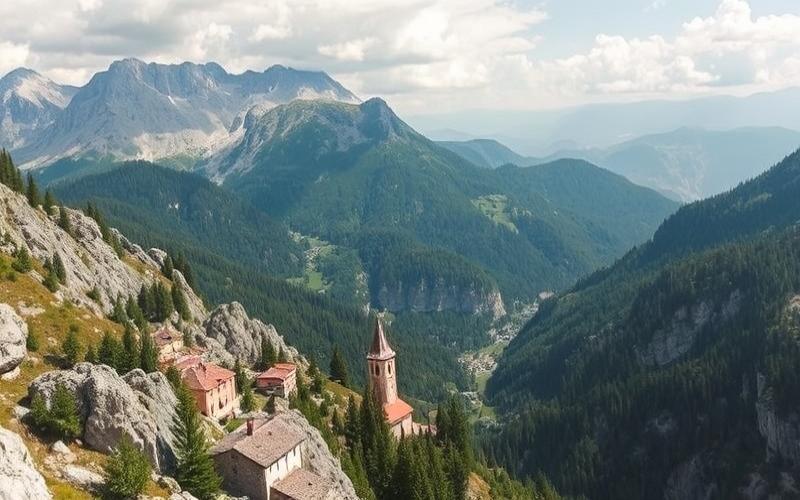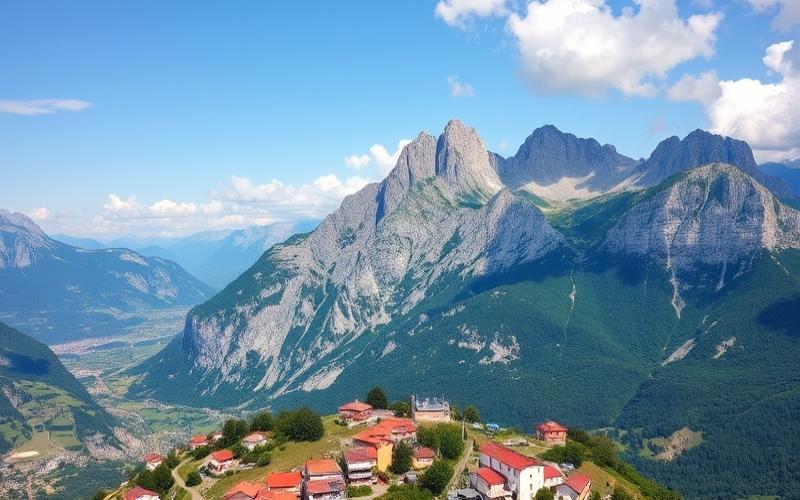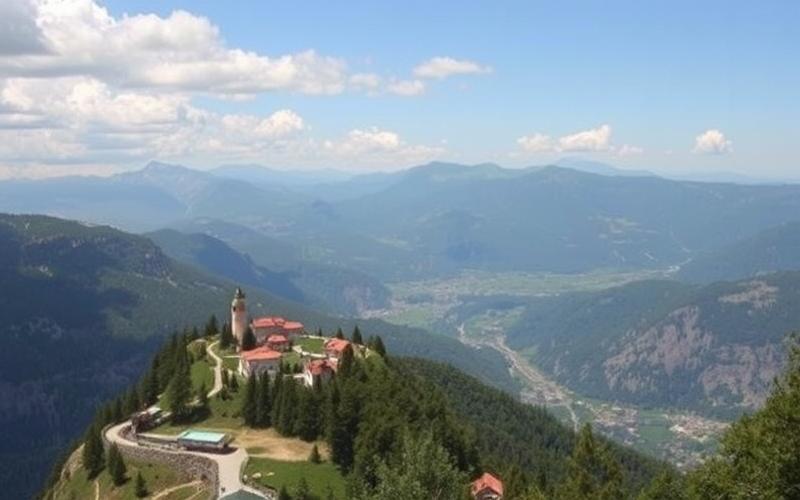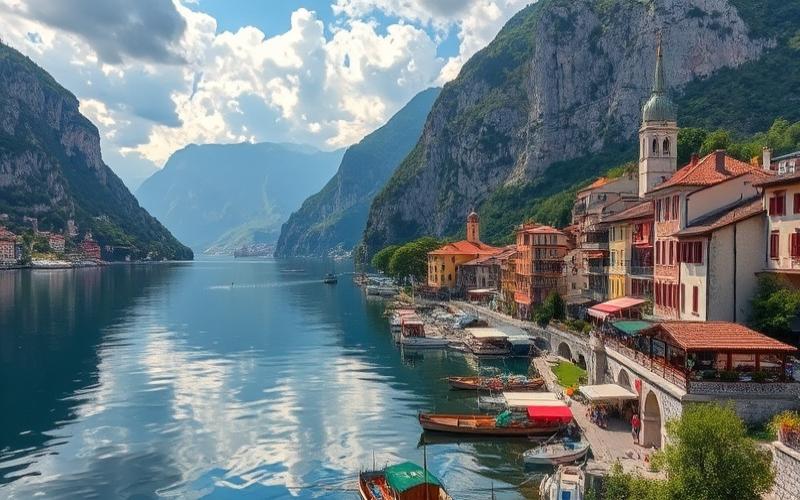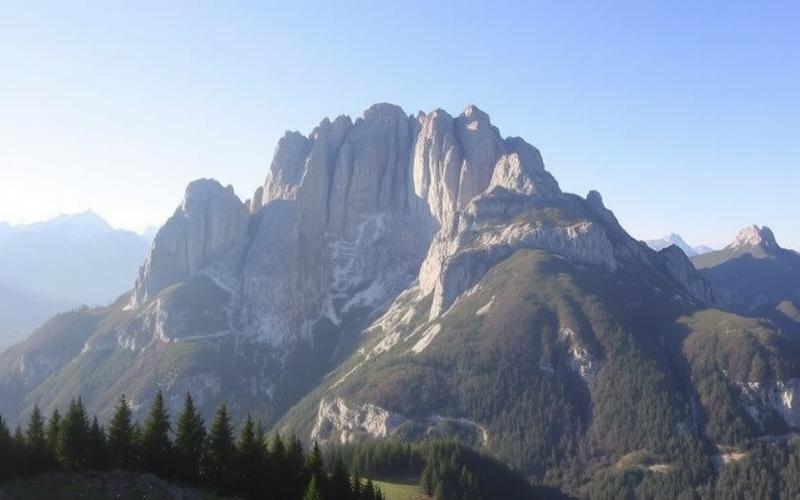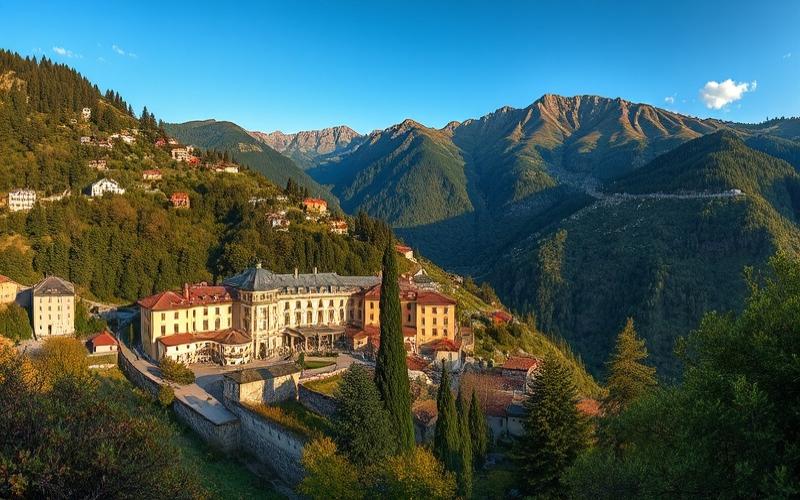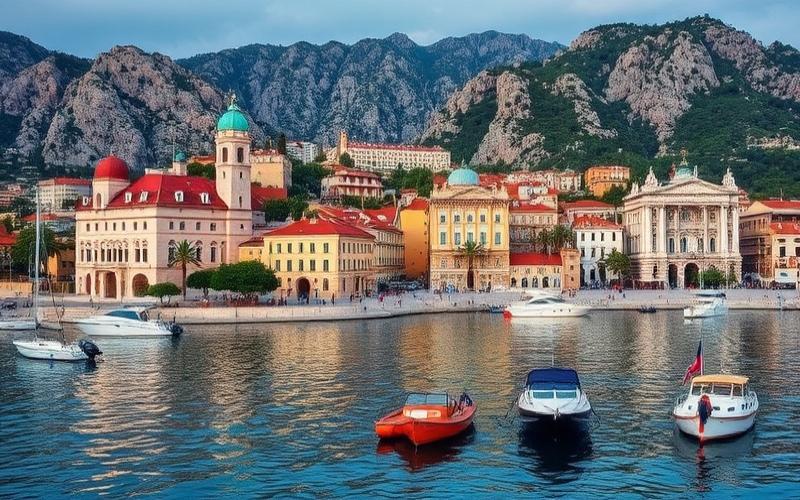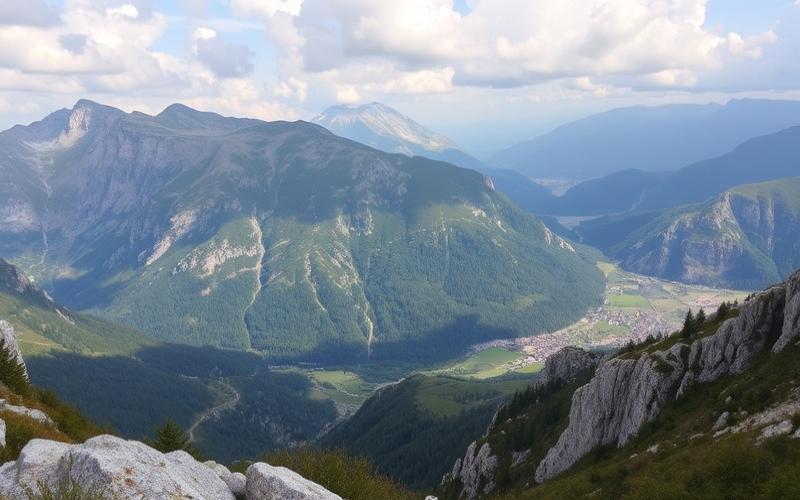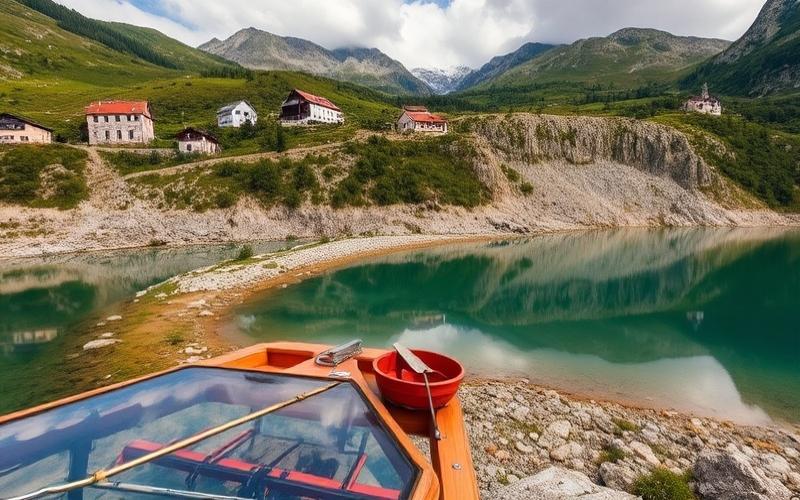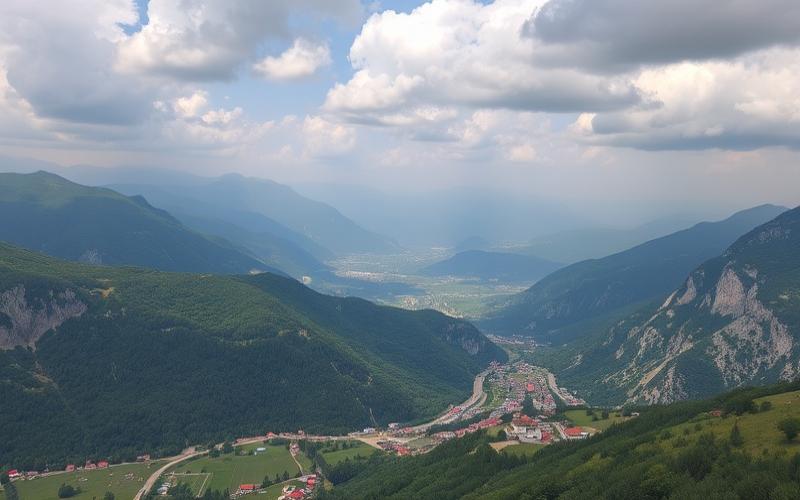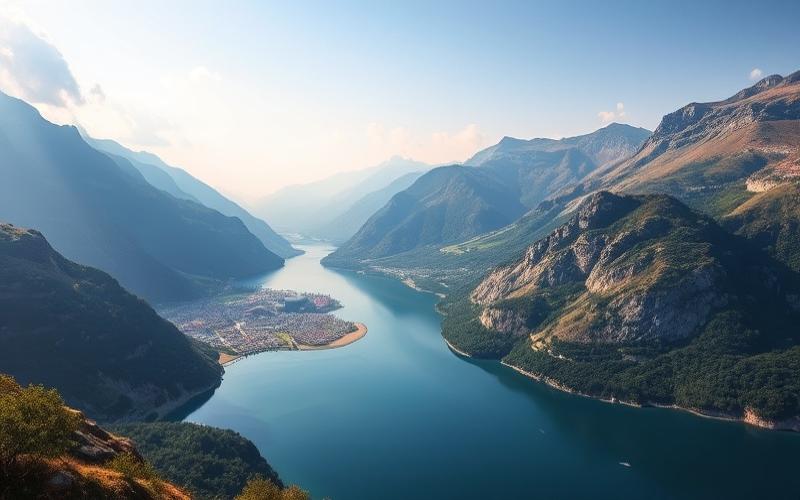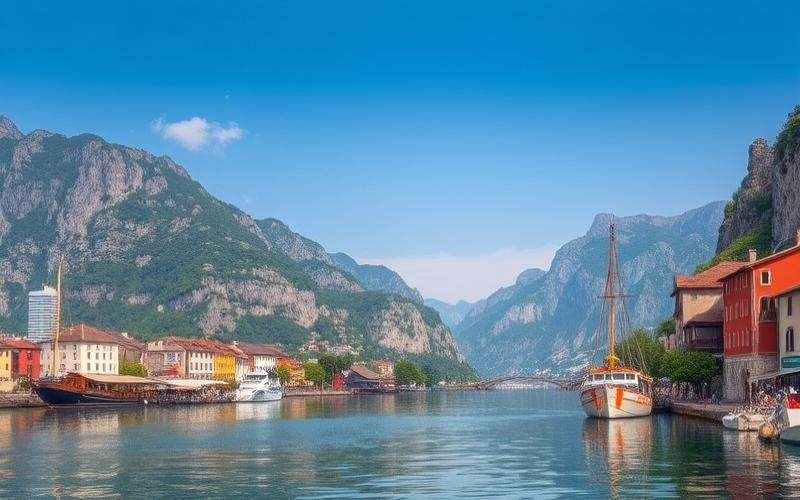
 Published on and written by Cyril Jarnias
Published on and written by Cyril Jarnias
Located in the Heart of the Balkans, Montenegro Attracts Real Estate Investors
Montenegro has always captured the interest of real estate investors, thanks to its picturesque landscapes and rapidly expanding tourism potential.
The Impact of the War in Ukraine on Montenegro’s Real Estate Market
However, the impact of the war in Ukraine has begun to affect this booming market, creating major economic and geopolitical changes.
These transformations have caused fluctuations in investment demand and have also altered the behavior of foreign buyers.
Strategic Opportunities Despite Uncertainty
While some see this situation as a source of uncertainty, others identify strategic opportunities to position themselves advantageously in the Montenegrin market.
Good to Know:
Montenegro remains an attractive destination for real estate investors despite the current geopolitical context, with prices still competitive compared to other Mediterranean destinations.
Geopolitical Consequences of the War in Ukraine on Montenegro
Montenegro has demonstrated unwavering support for Ukraine since the conflict began, fully aligning with the European Union’s common foreign and security policy. This position has significantly strengthened its relations with NATO countries, of which it is a member, while creating a significant rupture with Russia.
Since the start of the war, Montenegro has provided over 10 million euros in aid to Ukraine, including both military assistance and humanitarian aid. The country has also implemented all sanction packages against Russia and has consistently supported peace initiatives through co-sponsorships and favorable votes at the United Nations.
More recently, Montenegro’s Defense and Security Council approved the participation of its Armed Forces in the EU Military Assistance Mission and NATO’s security and training assistance for Ukraine. This decision, pending adoption by the Montenegrin Parliament, underscores the country’s commitment to collective security and further strengthens its ties with NATO.
Montenegro has also shown solidarity with Ukrainian refugees by extending their temporary protection regime until March 11, 2025. This humanitarian measure demonstrates the country’s commitment to supporting Ukrainian citizens affected by the conflict.
Regarding implications for the real estate sector, Montenegro’s geopolitical position significantly influences foreign investment flows. The country is poised to benefit from the EU’s favorable stance on enlargement, while responding with political will, stability, and reforms.
| Aspect | Impact on Montenegro’s Real Estate Sector |
| Relations with NATO | Strengthened perceived security, potentially attracting Western investors |
| Rupture with Russia | Possible decrease in Russian investments, traditionally significant in coastal real estate |
| EU Candidate Status | Increased appeal for European investors anticipating property value appreciation |
| Reception of Ukrainian Refugees | Potential pressure on the rental market and opportunities in housing development |
The evolving geopolitical context is pushing the Montenegrin government to adapt its real estate policies. Diversifying sources of foreign investment has become a priority, reducing historical dependence on Russian capital. Current tensions between Russia and the West are significantly impacting potential buyers’ perceptions.
Western investors increasingly view Montenegro as a haven of stability in the Balkans, reinforced by its NATO membership. However, uncertainty regarding the evolution of the Ukrainian conflict and its regional repercussions may lead to some caution in long-term investment decisions.
The situation in Ukraine in 2025, with Russian advances and Donald Trump’s return to the U.S. presidency, creates a climate of uncertainty that could affect international investor confidence. This geopolitical instability is pushing the Montenegrin government to strengthen legal guarantees for foreign investors and develop specific programs to attract Western capital.
In conclusion, Montenegro’s pro-Western positioning in the Ukrainian conflict is profoundly redefining its international relations and, by extension, the structure of its real estate market, creating both challenges and opportunities for the national economy.
Good to Know:
Montenegro, as a NATO member since 2017, has strengthened its ties with alliance countries in response to the war in Ukraine, which intensifies its diplomatic tensions with Russia. This unstable geopolitical context has notable repercussions on the country’s real estate sector, with some caution from foreign investors, particularly Russians who have traditionally been active in the region. Capital flows to Montenegro have been influenced by a partial redirection of investments from NATO countries, although the situation remains uncertain. Faced with these challenges, the Montenegrin government might consider adjusting its real estate policies to attract capital from the European Union and the United States, thereby strengthening the economic resilience of the sector. In this context, potential foreign buyers, concerned about regional stability, might be more selective, favoring areas perceived as politically safe, which could lead to a strategic reassessment of the local real estate supply.
The Evolution of Montenegro’s Real Estate Market in the Face of the Ukrainian Crisis
The immediate impact of the Ukrainian crisis resulted in a notable drying up of foreign investment flows, particularly Russian, in Montenegro’s real estate sector. Sanctions on Russian financial institutions and restrictions on financial movements have hindered access to Russian capital, which historically represented a major share of real estate investments on the Adriatic coast. This decline ended a period of real estate frenzy fueled by this influx of external funds.
After the conflict began, the market experienced a general increase in prices for residential and commercial real estate. The scarcity of supply linked to the sudden drop in new projects and persistent demand—particularly from Western buyers seeking to capitalize on opportunities—contributed to this rise.
| Segment | Post-Crisis Evolution |
|---|---|
| Coastal Residential | Marked Increase |
| Urban Commercial | Moderate Fluctuation |
The most affected regions are coastal areas such as Budva, Kotor, and Tivat, where “the majority of invested money historically came from Russia.” These localities have seen their dynamics disrupted with high volatility in transaction volume.
The Montenegrin government responded by adapting certain legislative provisions to mitigate these effects: temporary easing of administrative procedures to attract other international investors; consideration of targeted tax incentives to compensate for the loss of Russian capital; enhanced control over financial flows to comply with European requirements while remaining attractive to a new investor profile.
On the Ukrainian side, there has been a noticeable increase since 2022 in the number of citizens seeking refuge or residence in Montenegro. Their demand primarily focuses on:
- Family homes in coastal cities
- Mid-range properties accessible quickly without complex procedures
- A growing preference for purchasing rather than long-term renting
In the medium term, the market is expected to remain under pressure with:
- A gradual rebalancing toward more European and Middle Eastern buyers
- Increased geographical diversification beyond the traditional coastline
In the long term, if geopolitical instability persists around the Black Sea-Adriatic basin, it is likely that Montenegro will continue its transformation toward a model less dependent solely on Russian or Ukrainian capital but more integrated into European and Mediterranean regional dynamics.
Good to Know:
The invasion of Ukraine triggered a marked influx of foreign investment in Montenegrin real estate, with a notable increase in demand from Ukrainian citizens seeking refuge, leading to a surge in both residential and commercial prices, particularly on the Adriatic coast and in the capital, Podgorica. In response, the Montenegrin government took legislative measures to facilitate property acquisition by foreigners, while introducing tax incentives to attract more investors. In the medium term, although geopolitical uncertainty continues to pose a threat, the market shows signs of stabilization, with international buyers viewing Montenegro as a safe destination to diversify their portfolios.
The Impact of Ukrainian Refugee Arrivals on Housing in Montenegro
Since the conflict in Ukraine began in February 2022, Montenegro has welcomed a notable number of Ukrainian refugees. By the end of September 2023, nearly 62,000 Ukrainians had obtained legal status in the country, representing approximately 10% of the Montenegrin population.
Evolution of Ukrainian Refugee Numbers in Montenegro
| Period | Estimated Number of Ukrainian Refugees | Share Relative to Population |
|---|---|---|
| September 2023 | 62,000 | ≈10% |
The massive arrival of this population has had several consequences on Montenegro’s housing market. Demand has particularly increased in urban and coastal areas like Podgorica, Budva, or Kotor, where infrastructure is already under pressure during tourist seasons.
Main Impacts on Real Estate Demand and Supply:
- Rapid rise in rental demand in main cities and seaside resorts.
- Significant rent increases observed in certain localities.
- Growing tension between available (limited) supply and strong new demand.
Faced with this imbalance between supply and demand, several adjustments were necessary:
- Mobilization of temporary accommodations (hotels during off-season).
- Temporary conversion of tourist apartments into housing for refugees.
- Accelerated development of public/private initiatives to increase available supply.
The Montenegrin government adopted various measures to facilitate access to housing:
- Assignment of temporary legal status providing access to social services and certain housing assistance programs.
- Establishment of agreements with certain private owners to reserve part of the real estate stock for refugees.
Local authorities also implemented specific measures depending on the municipality: enhanced administrative assistance, dedicated service counters, or logistical support during settlement.
Role of Private Actors & Humanitarian Organizations:
- Private real estate agencies played a key role in connecting local property owners with new Ukrainian arrivals.
- International NGOs as well as some local associations offered free or subsidized temporary housing during the first months after arrival.
Testimonies collected from Ukrainian families frequently indicate:
“Finding affordable housing was almost impossible during the summer. We had to accept a more expensive apartment far from the city center… but we are grateful for all the help received.”
Economic & Social Challenges Induced by This Real Estate Pressure:
- Increased risk of social exclusion among vulnerable groups (large families, elderly).
- Generalized rise in average housing costs affecting both locals and new arrivals.
- Occasional emergence of community tensions around limited resources during peak tourist season.
Long-Term Perspectives on Montenegro’s Real Estate Market
The unexpected and prolonged influx has durably altered the local residential landscape: increased professionalization among some private landlords is observed, along with renewed interest in developing more versatile residential infrastructure to anticipate any future migration crises.
Good to Know:
Since the conflict in Ukraine began, Montenegro has welcomed approximately 10,000 Ukrainian refugees, primarily concentrated in urban and coastal areas, creating significant pressure on the real estate market. This massive arrival has caused a notable increase in housing demand, facing an already limited supply, requiring major adjustments to accommodate this new population. To address this, the Montenegrin government implemented measures such as simplifying administrative procedures for housing access and collaborating with private actors, notably by encouraging real estate investment. Humanitarian organizations also played a key role by providing logistical and financial support. Refugee testimonies reveal encountered difficulties, such as rising rents and a shortage of affordable housing. In the long term, this pressure could lead to repercussions on Montenegro’s real estate market, raising economic and social challenges, while questioning the sustainability of current models in the face of international emergency situations.
Investment Opportunities in Montenegro in a Tense Geopolitical Context
Real estate sectors likely to be favored by foreign investment in Montenegro, despite the current geopolitical context, primarily include:
- Coastal tourism (seaside resorts, vacation homes)
- Luxury residences and high-end hotel complexes
- Modern urban infrastructure (mixed residential and commercial projects)
Iconic Examples:
- Lustica Bay: flagship project with a total planned investment of 1 billion euros over 15 years. It includes villas, apartments, five-star hotels (including Chedi), marinas, and medical facilities. Prices reach 6,000 to over 15,000 €/m².
- Continuous arrival of international hotel brands such as Regent, One & Only, or Chedi, strengthening Montenegro’s position as a preferred destination for luxury tourism.
| Sector | Main Assets | Indicative Prices |
|---|---|---|
| Coastal Tourism | Strong tourist demand; varied offerings | Up to 15,000 €/m² |
| Luxury Residences | International presence; exclusivity | Starting from 6,000 €/m² |
| Urban Infrastructure | Urban growth; attractiveness for expatriates and retirees | Varies by project |
Montenegro maintains its attractiveness compared to other Balkan countries thanks to:
- Pro-investment government policies:
- Modernized spatial planning law facilitating procedures
- “Golden Visa” programs offering residency in exchange for real estate investment starting at 250,000 € in state-approved projects
- Advantageous taxation: low corporate taxation and no wealth tax
Regional Comparison
| Criterion | Montenegro | Other Balkans |
|---|---|---|
| EU Access | EU Candidate Status | Similar |
| Golden Visa | Yes | Rare/More Restrictive |
| Taxation | Low | Variable |
| Political Stability | Relatively Stable | Sometimes Less Predictable |
Potential Challenges Related to Investment Security
- Increased sensitivity to regional crises (Ukraine-Russia tensions impacting certain tourist flows or investments)
- Partial dependence on Russian/Ukrainian investors in certain coastal regions
- Need for investors to conduct thorough analysis regarding the legal solidity of transactions
Opportunities Linked to Montenegro’s Strategic Position
The country benefits from:
- A key location between Central/Balkan Europe and the Mediterranean
- Current absence of major barriers to foreign investment
- A rapidly growing market with strong demand for the high-end hotel sector
According to several experts, despite uncertainties induced by the conflict in Ukraine or a tense geopolitical climate, the Montenegrin market is still considered durably attractive if investments are well-targeted. The continuous arrival of prestigious international operators testifies to persistent confidence in the country’s relative stability as well as its growing tourism potential.
To maximize their security and returns in Montenegro in an uncertain context:
- Prioritize projects overseen by the state or backed by recognized developers
- Stay regularly informed about local legal/fiscal developments
- Diversify real estate investments between tourist residential and urban properties
Good to Know:
Despite the tense geopolitical climate due to the war in Ukraine, Montenegro remains a sought-after destination for foreign investments, particularly in the real estate sector. Opportunities abound in coastal tourism, with growing demand for luxury residences along the Adriatic coast, and in urban infrastructure development, notably in Podgorica. Montenegro distinguishes itself from other Balkan countries through its investor-friendly policies, including attractive tax incentives and a flexible regulatory framework. However, regional stability and investment security remain concerns, although the country capitalizes on its strategic geographical position between Eastern Europe and the EU to attract investments. According to experts, current tensions do not hinder the sustainability of real estate investments, as the Montenegrin market continues to offer interesting growth and return potential, thereby boosting investor confidence in the future of this sector.
Disclaimer: The information provided on this website is for informational purposes only and does not constitute financial, legal, or professional advice. We encourage you to consult qualified experts before making any investment, real estate, or expatriation decisions. Although we strive to maintain up-to-date and accurate information, we do not guarantee the completeness, accuracy, or timeliness of the proposed content. As investment and expatriation involve risks, we disclaim any liability for potential losses or damages arising from the use of this site. Your use of this site confirms your acceptance of these terms and your understanding of the associated risks.

